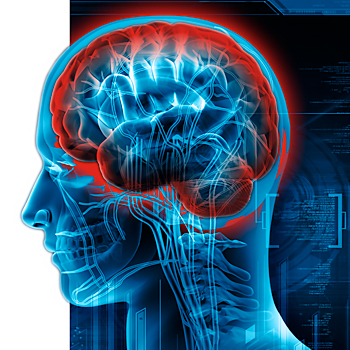
March is National Brain Injury Awareness Month and today is Brain Injury Awareness Day. The purpose of these occasions is to help raise awareness and educate the public about prevention of these devastating injuries.
Each year, more than 3.5 million Americans suffer an acquired brain injury (ABI). More than 12 million people nationwide deal with the impact of an ABI on a daily basis.
An ABI is a non-hereditary, degenerative, congenital, or birth trauma-related brain injury. ABIs are caused by traumatic brain injuries (TBI) or non-traumatic brain injuries.
Traumatic Brain Injuries
Traumatic brain injuries are the leading cause of ABI, with 2.5 million Americans sustaining a TBI each year, according to the Centers for Disease Control and Prevention (CDC). These injuries cause 2.2 million emergency room visits, 280,000 hospitalizations and 50,000 deaths each year.
TBI is caused by brain trauma from an external force. The most common causes of TBIs include:
- Falls (40 percent) – This could include falling out of bed, slipping in the shower, falling down stairs or falling off a ladder.
- Assault and other blows to the head (26.2 percent) – This includes domestic violence, child abuse, shaken baby syndrome, gunshot wounds and other forms of violence.
- Motor vehicle accident (14.3 percent) – This includes car accidents involving other cars, pedestrians or motorcyclists.
- Unknown (19 percent) – This covers anything not caused by one of the other three.
According to CDC estimates, approximately 5.3 million Americans have a long-term or lifelong need for help with daily activities as the result of a disability caused by a TBI.
Non-Traumatic Brain Injuries
Non-traumatic brain injuries are any ABI not caused by trauma to the brain from an external force. Non-traumatic brain injuries are often caused by:
- Anoxia
- Infections, such as encephalitis or meningitis
- Stroke
- Poisons or toxins
- Illicit drug use
- Brain tumors
- Metabolic disorders related to cardiovascular disease or nutritional deficiencies
Effects of Brain Injuries
Regardless of the cause, brain injuries can lead to all sorts of cognitive and physical impairments that could affect victims for the rest of their lives.
Common side effects of brain injuries include:
- Motor impairments – This covers paralysis, loss of coordination, loss of mobility and involuntary movements.
- Cognitive impairments – This includes problems with reasoning, memory, language, organization, learning and perception.
- Psychological or social issues – This can include depression, changes in personality, aggression, social withdrawal and trouble regulating emotions.
- Sensory impairments – This could include loss of touch, hearing, visual impairment and loss of taste or smell.
These impairments and disabilities can make it difficult or impossible for victims to handle daily activities that they took for granted before the injury, including getting dressed, bathing and toileting.
Signs of a Brain Injury
If you experience any of these symptoms, it could be a sign of a brain injury and you should immediately seek medical attention:
- Memory issues
- Changes in personality
- Trouble concentrating or organizing thoughts
- Becoming confused easily
- Trouble solving problems
Hiring a Brain Injury Lawyer
Brain injuries can be life-altering, causing permanent physical and psychological changes that require long-term medical treatment.
However, if your brain injury resulted from someone else’s negligence, you may be entitled to compensation to cover all of the damages you have suffered. A brain injury lawyer can work to establish liability for your injury and recover compensation to pay your medical bills, lost wages, and pain and suffering.
Janet, Janet & Suggs’ experienced brain injury attorneys are available to assist you.
Call 1-877-692-3862 or complete our Free Case Evaluation form.
